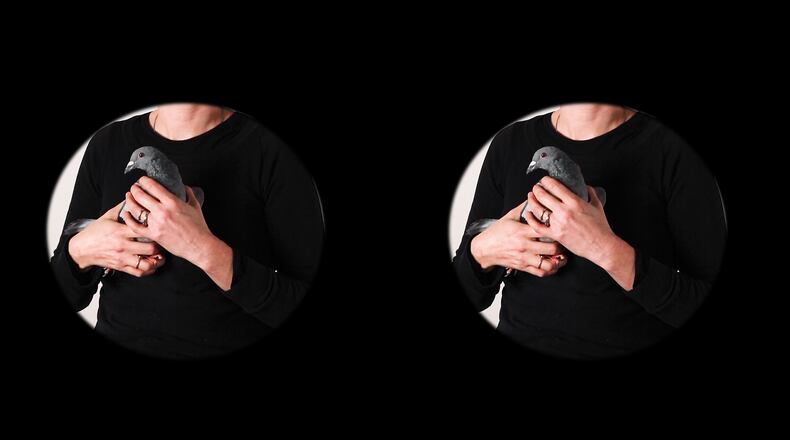Many of us have escaped the rigors of the pandemic by retreating to nature. Our personal Mother Nature might be a postage stamp-sized yard or the Beltline’s festive communal arboretum. During a time of deep introspection and isolation, even the most quotidian plants and birds suddenly became a wonderfully vibrant reminder that, despite the deprivations of a modern plague, life went on. We, like nature, could be resilient.
With a job description that virtually requires them to go deep into new worlds, many artists have done the same, exploring or simply deepening their engagement with the theme of nature in their artwork.
Featuring seven artists from Georgia and further afield, the group show “Private Nature” at Swan Coach House Gallery was organized by former Atlanta Contemporary and Zuckerman Museum of Art curator and artist Teresa Bramlette Reeves. Reeves has assembled a group of artists with a mostly lyrical vision of the birds and the bees. Despite what we know of the ugly side of nature including a pandemic-era miasma of floods and fires, there is no sign here of the ferocity or cruelty of the natural world. For that reason, “Private Nature” can occasionally feel overly precious and almost Victorian for the dreamy romanticism surrounding its subject.
Credit: Handout
Credit: Handout
If there is violence in “Private Nature,” it is the second-hand menace of pressing dead flowers into a scrapbook. Artist Eric Mack does just that. His handmade paper contains ghosts of rose petals and wildflower foliage sealed like dinosaur bones in the pulp. And in artist Dayna Thacker’s collages, nature is depicted as luminous blossoms erupting from a vase like a transcendent life force that is held in check by a marvelous golden web.
Credit: Handout
Credit: Handout
There’s no better illustration of the wispy mood that defines “Private Nature” than Emily J. Gómez’s cyanotypes of Southern waterfalls. Her charming “Pocket Waterfalls” are held in the velvet-lined small leather cases of the sort that husbands and wives once used to house 19th-century daguerrotypes of their beloved. There’s great appeal in this idea of romantic pining for the rushing icy tumult of Dry Falls or Amicalola Falls. “Private Nature” takes its title from this idea of a nature held close and savored for one’s personal delectation. The darker implication hovering at the margins is that, if we continue on the destructive road we humans are traveling, pocket photographs may be all we have left of nature’s beauty.
Credit: Handout
Credit: Handout
Very much in a similar vein, combining a streak of melancholy and adoration, are Emily Bivens’ equally provocative and lovely video works which center on the most overlooked and banal, Steve Buscemi of birds — the lowly pigeon.
There is something tragic and tender in works like “Perpetual Motion,” a video projection that appears on the gallery wall like a dark whirlwind or a Victorian phantasm. The piece features a woman captured in a 360-degree shot as she cradles a pigeon in the crook of her folded arms. What initially seems like a tender gesture turns out to be a mildly sinister one. The pigeon, like much of the material of Bivens’ art-making, is taxidermied. Bivens’ work questions human motivation when it comes to how we treat our furry and feathered friends.
In Bivens’ “Return” what looks like an ivory sculpture formed out of melting cake batter occasionally reveals small mammals and birds peeking out from the lumpy mass. The artist has created an uncanny effect by trapping that wild and teaming sculpture under a glass bell jar and orchestrated its inertia to the suddenly plaintive, distant sounds of birds in flight.
The air of Victorian angst that can underpin “Private Nature” may have to do with the increasingly bereft human response to nature that emerges at times here; of seeing something vital and strong perhaps on its way out.
ART REVIEW
“Private Nature”
Through Nov. 4. 10 a.m.-4 p.m. Tuesdays-Saturdays. Artist talk: 11 a.m. Oct. 23. Swan Coach House Gallery, 3130 Slaton Drive N.W., Atlanta. 404-261-0636, gallery.swancoachhouse.com.
Bottom line: Melancholy musings on nature in a group show that can feel a little thin in toto.
About the Author
Keep Reading
The Latest
Featured




